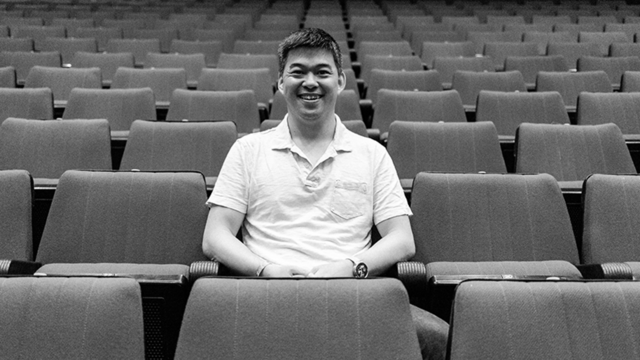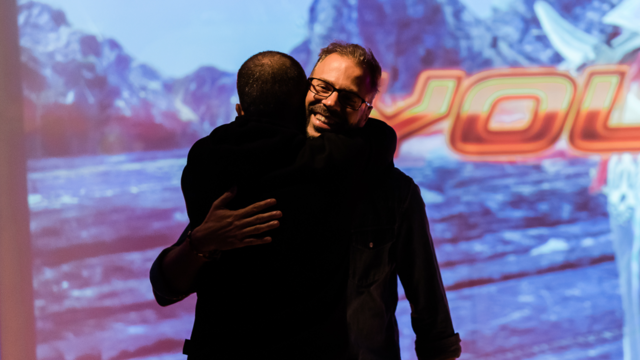Meet Chris Goodall, Principal Gameplay Animator at Playground Games taking you through his career beginnings and a typical day at the studio.
How did your journey as a Gameplay Animator start?
I’m part of the generation of animators utterly captivated by Toy Story and Jurassic Park at a young age. Combine that with the release of the PlayStation and N64 in my formative years and it created an irresistible recipe for what direction I wanted to pursue. At school, I answered the question “What job would you like to do?” in the personal statement section of my Record of Achievement (not sure if they still do those?) with “Something in video games would be nice.”
My education path was taking subjects and courses that I thought would get me closer to my goal like Art, Mixed media, and a degree in Computer Animation and Special Effects. There were no video game-related courses back then, and I didn’t know anybody who could really help me achieve my goal. A year after graduating and working on my portfolio, I submitted an application for an animation internship position at a studio called Ninja Theory (whose existence I just discovered after listening to a podcast about gameplay animation). The rest, as they say, is history.
(My 11-year-old self would be so amazed right now!)
What does a regular day look like for you? Take us through it!
I start with coffee (important) while getting the latest build of the game. Then, usually, a quick catch-up with the team to see where we are at, any problems that there may be, and our goals for the day. On a good day, I'll get as much time as possible to focus on my craft and mentoring other animators. Some days I may have to allocate more time to planning and discussion, on others I may be running a Motion Capture shoot (or acting in it!). There’s always a mix and that’s part of what keeps it so interesting.
How do you stay inspired and motivated?
The industry is in a state of constant change, pushing what’s possible with storytelling in this medium, which is exciting. Working with such talented people and immersing yourself in what’s happening in departments outside of animation is a constant source of inspiration: the latest concept art and character models, the latest lighting update, the latest script for a narrative sequence, all this fuels the fire and gives you new ideas and inspiration for what’s next. Externally, staying on the pulse with what’s happening in the industry and following artists whose work you enjoy is also inspiring and motivating.
Ultimately seeing it all come together and connect with the audience is the most rewarding part for me personally. That’s why I do what I do. Creating memorable experiences that persist long after the game has ended is the greatest reward and achievement.
What advice would you give to someone interested in working as a Gameplay Animator?
Focus on your craft. Learn how to animate to the best of your ability and seek feedback on your work. Getting critique is the best way to improve because you can’t see what you can’t see, and someone with more experience will be able to point those things out. It also trains you to see feedback as a tool for learning, rather than a negative. This focus shift is really important.
Game Developer first, animator second. It’s important that you see yourself as a game developer, not just an animator. The game is the product that matters and if it doesn’t work in the context of the game, it doesn’t matter how good your animation is. Always test your work in the game engine. Learn to collaborate with other departments, it’s a team effort and when the team comes together that’s where the magic happens.
Keep your finger on the pulse. Put yourself in a position to succeed by being able to respond when new opportunities arise. Always having your portfolio ready and accessible along with your CV is crucial to being able to capitalize on any opportunity that comes your way.
Have fun. At the end of the day, you want to do this because you enjoy it. Have fun, play, experiment, it’s a lifelong journey and it’s important to enjoy the process.




